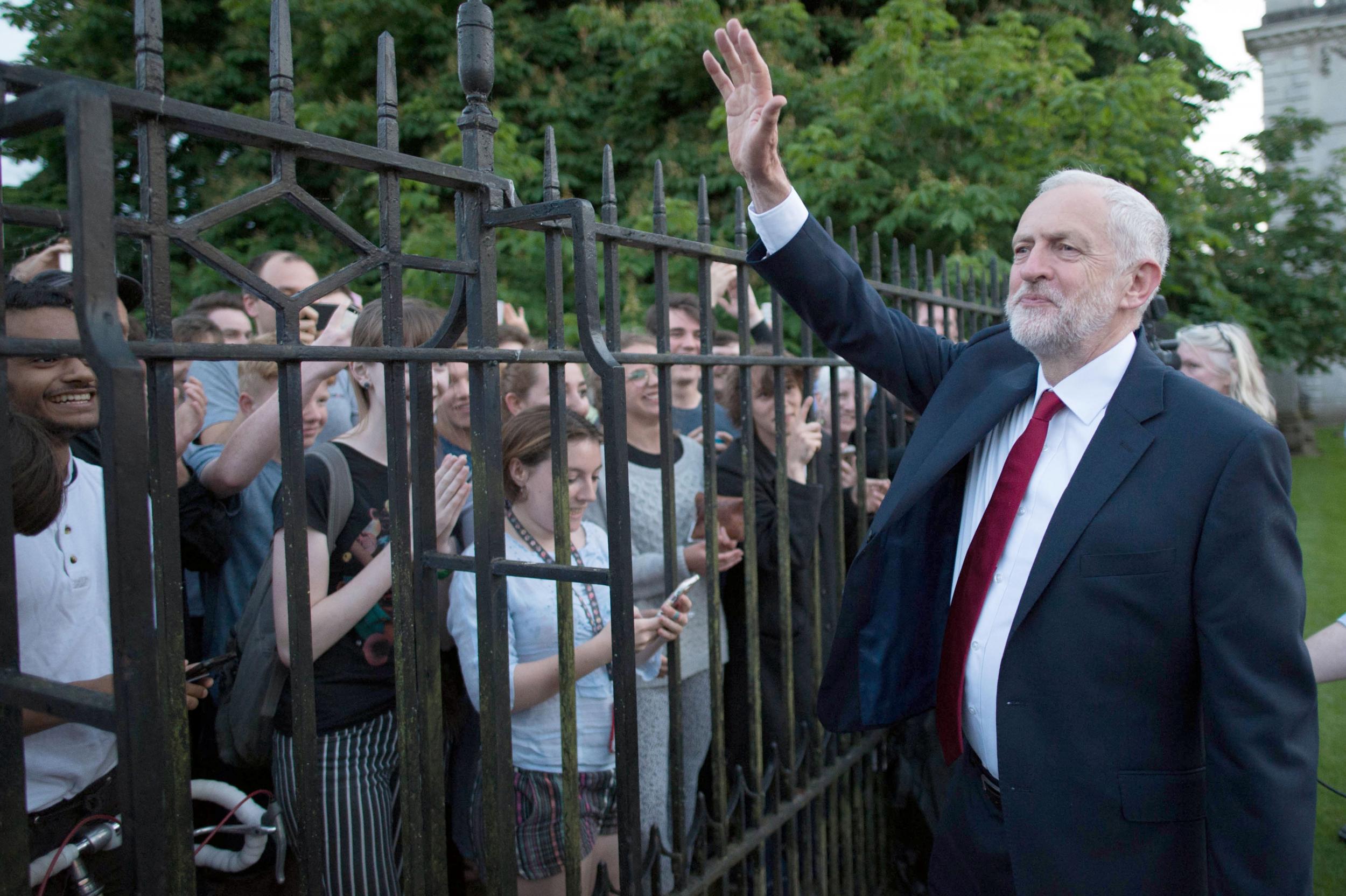Labour could get late boost from former Ukip voters, research finds
Pollsters had previously predicted an overwhelming majority of Nigel Farage's former fan base would back Theresa May - but two focus groups suggest many may opt for Jeremy Corbyn

Your support helps us to tell the story
From reproductive rights to climate change to Big Tech, The Independent is on the ground when the story is developing. Whether it's investigating the financials of Elon Musk's pro-Trump PAC or producing our latest documentary, 'The A Word', which shines a light on the American women fighting for reproductive rights, we know how important it is to parse out the facts from the messaging.
At such a critical moment in US history, we need reporters on the ground. Your donation allows us to keep sending journalists to speak to both sides of the story.
The Independent is trusted by Americans across the entire political spectrum. And unlike many other quality news outlets, we choose not to lock Americans out of our reporting and analysis with paywalls. We believe quality journalism should be available to everyone, paid for by those who can afford it.
Your support makes all the difference.Jeremy Corbyn’s election campaign could be given a late boost by former Ukip voters deciding to give their vote to Labour rather than to the Conservatives, according to two focus groups.
Experts had previously predicted that most of those who have recently voted for Ukip would now back Theresa May because of her apparent commitment to Brexit and her pledge to reduce immigration, but in a surprising shift, half of one group said they would now consider voting Labour.
Over the course of the campaign, Mr Corbyn has repeatedly clarified that his party would not seek a second referendum, which may have gone some way to appeasing pro-Leave former Labour voters who had defected to Ukip under the leadership of Nigel Farage.
Some of the group, hosted by the Huffington Post and Edelman, said they felt “let down” by Mr Farage’s decision to stand down in the immediate aftermath of the EU referendum, and would not be voting for the party, now led by Paul Nuttall.
The two focus groups were small, comprising six men and nine women aged 35 to 74 but if the findings of the group were to translate into votes at the ballot box next June, this could spell good news for Labour, who have enjoyed something of a resurgence in the polls having previously lagged behind by up to 24 points.
Although the majority of the two groups said they were still likely to back Ms May, half of one of the groups were now considering voting for Mr Corbyn.
Although he has repeatedly refused to set a target for immigration, the Labour leader has moved to clarify the party's position around Brexit throughout the election campaign after an overwhelming majority of his MPs backed remain.
He told the BBC: "Can I make it clear: Yes, we accept the result of the referendum, Britain is leaving the European Union and we will negotiate a tariff-free trade access to the European market.
"That is essential for our manufacturing industry, essential for that trade and our future.
"We will also make sure that we protect those conditions we have achieved through Europe, such as the working time directive and issues like that.
"We will also guarantee the rights of EU nationals to remain here."
The focus groups expressed concerns about immigration, with the majority still in favour of leaving the EU. Some still had worries about a perceived lack of patriotism in Mr Corbyn – such as his reluctance to sing the national anthem – but others saw him as being authentic and consistent.
Sue, a healthcare worker and mother-of-two, said: “I like him a lot, because he has been saying the same thing for 30 years. There are no surprises with him.”
Customer service worker Kim said: “He has stepped up recently. I have been seeing him on the news most mornings."
Julia, a retired nurse, said that although the Labour leader was “being true to himself", she planned to vote Conservative.
“He’s unfortunate because he doesn’t have the support of his colleagues,” she added.
Ukip's fortunes have plummeted in the polls since the Brexit vote, with many now regarding it as a party without a purpose. The party finished in third place in terms of the popular vote in the 2015 general election, but only ended up with one MP under the first-past-the-post system.
The party was plagued by in-fighting in the wake of Mr Farage's resignation and the subsequent messy leadership contest and its only MP, Douglas Carswell, quit the party to become an independent. Current polls suggest the party will fail to take a single seat on 8 June.
Join our commenting forum
Join thought-provoking conversations, follow other Independent readers and see their replies
Comments